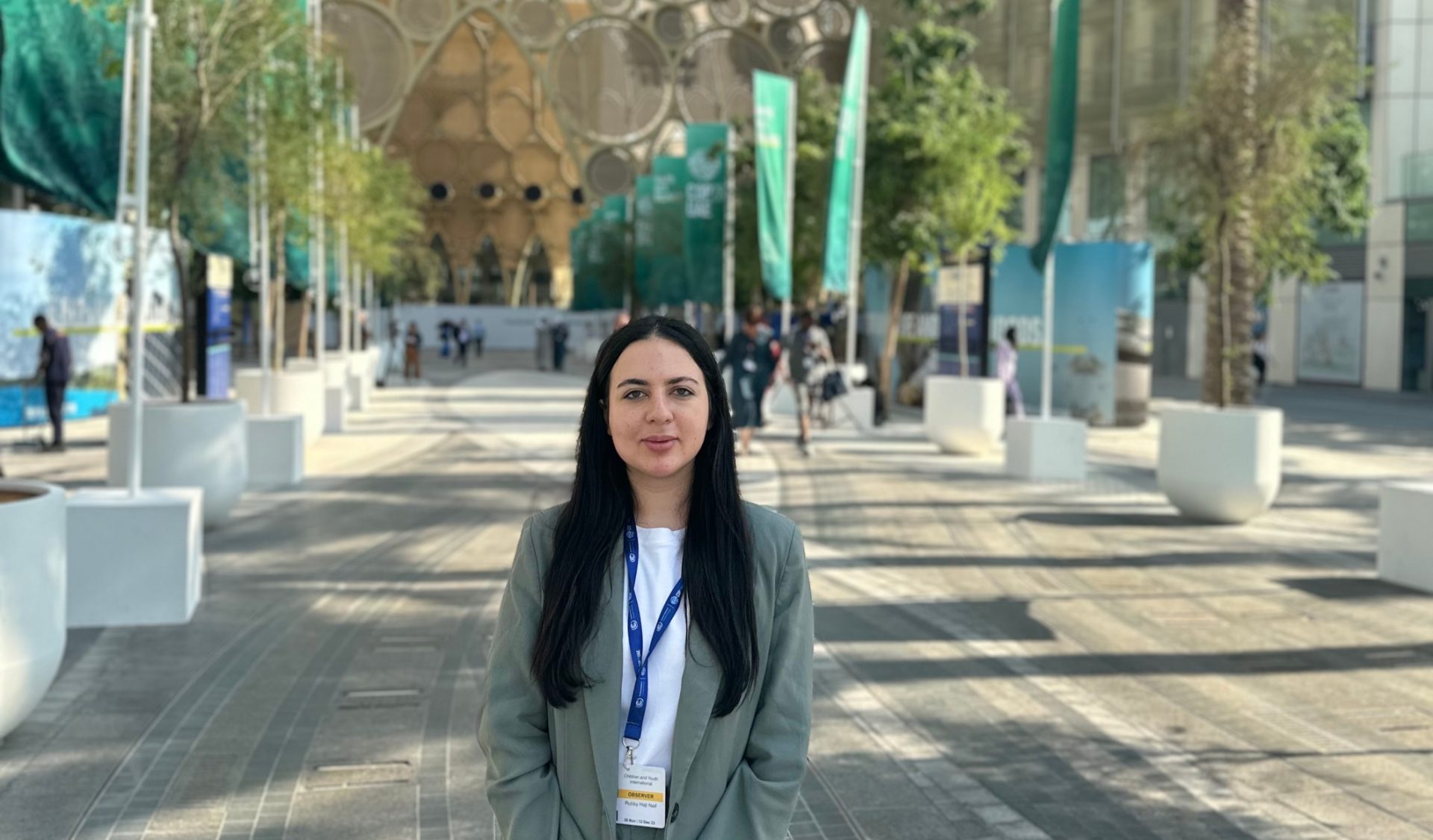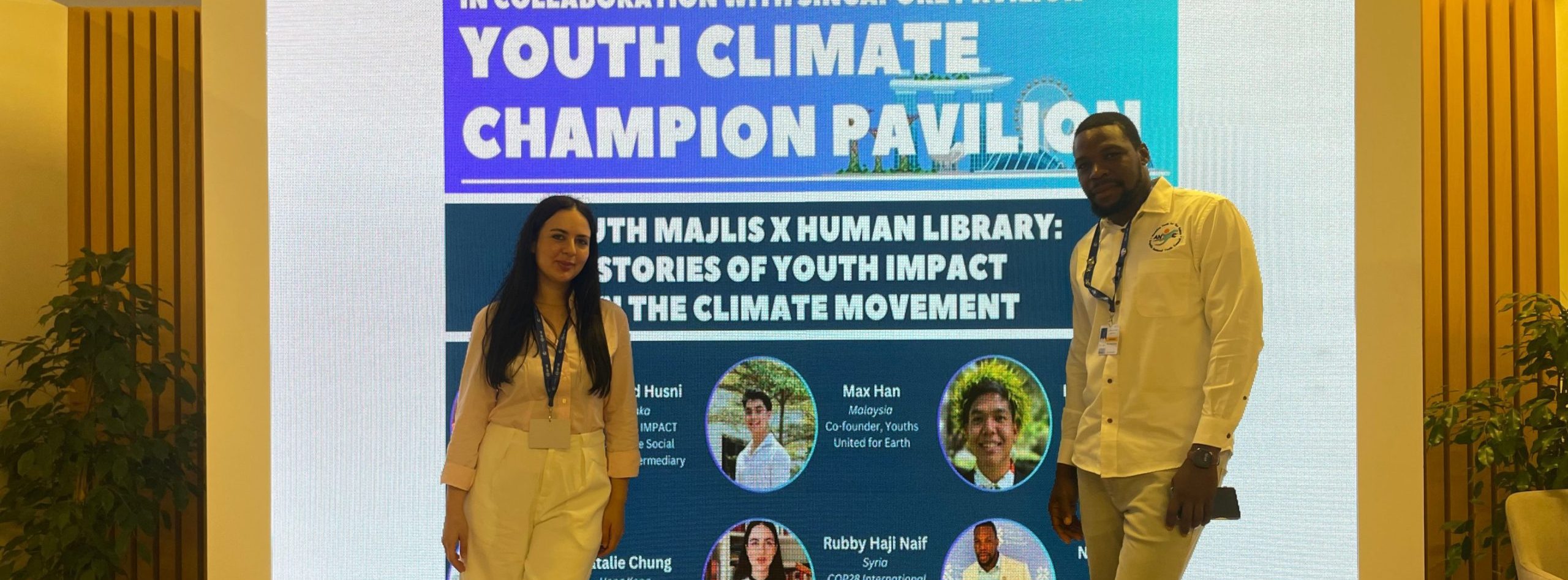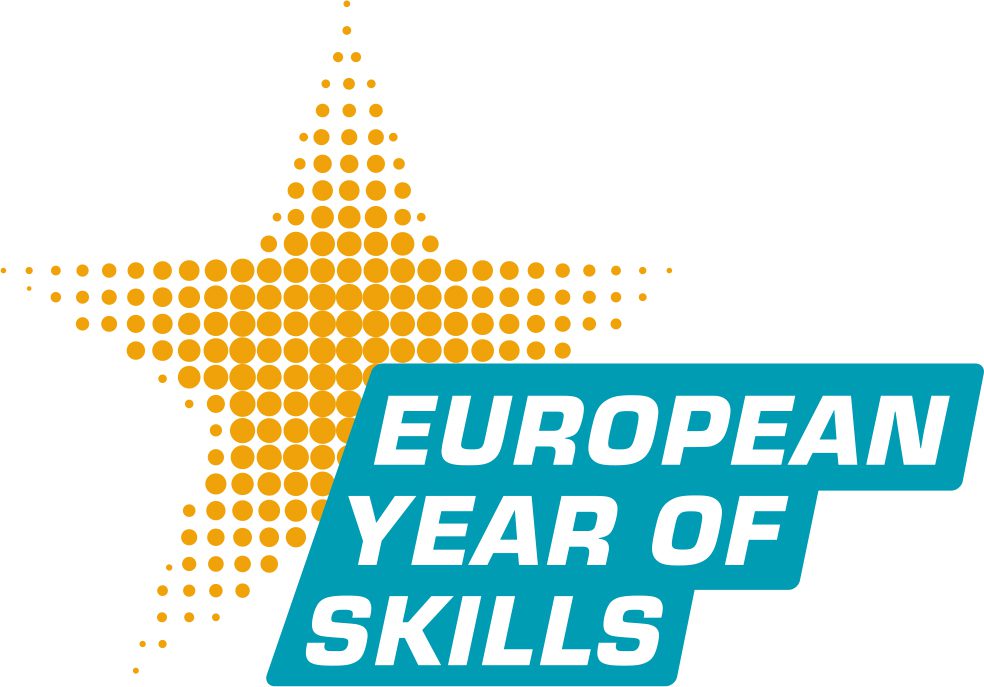The European Union is a strong promoter of the importance of Skills, which are especially relevant in today’s market. Through a number of initiatives, the EU supports young women and men across the Southern Neighbourhood to develop their competences and secure a promising future. In this Flashback series, we spoke to youth who benefited from these projects. Today, they reflect on the positive impact this support has had on their life.
Syrian Ruby Haji Naif is a dedicated activist working relentlessly to amplify the voices of women, refugees and climate advocates. During her recent participation in the COP28, she used the skills gained through EU-funded programme D-JIL to champion a brighter future for all.
When you embarked on this journey, what were your dreams?
My dream has always been to become a journalist, a storyteller. As a Syrian refugee, I want to use my voice to tell the stories of my people.
Especially in the context of Europe, I believe it is much needed to tell the stories of immigrants in a human way. I want to portray their lives in a context that is related to the wider human experience. It has always been very important to me.
Now, with the climate crisis -which is another of my areas of research- I think it is even more important to explore and understand ‘how do humans make a home?’.
That is closely linked to my dream of launching my own social entreprise which would focus on the intersection between climate justice and gender equality.
What skills did you gain through the EU-funded programme D-JIL and how did they help you advance your dreams?
While I was already working in the field of journalism, I knew that, to truly excel and make a meaningful impact, I had to sharpen my skills. That’s when I decided to first focus on improving how to write, how to communicate so that I could be a better writer and storyteller. The skills I gained during this journey with D-JIL and my mentorship programme Raseef22 have been invaluable in every facet of my professional life.
What truly made this experience exceptional was the mentorship aspect of things. Because I did not just gain skills; I also connected with some incredible journalists whom, even years later, I continue to have contact with. I seek their advice and they give me insights. One of the programme managers even still shares opportunities with me on a regular basis, be it to write articles or engage in activism.
For me, the programme opened doors to invaluable connections that are often hard to come by. I realised that growth is a collaborative effort and this conviction drives a lot of my work nowadays.
Today, what is your proudest achievement?
It is difficult for me to pinpoint only one because my journalism is so intertwined with my advocacy and activism work. I would say it has been to contribute as a dedicated volunteer to causes focusing on women’s rights, refugee rights, gender equality, and climate issues. My participation in the Commission on the Status of Women (CSW67) in March 2023 stands out as it allowed me to share my story as a Syrian woman and amplify the voices of fellow Syrian women on a global platform. It wasn’t just about being present; it was about using this opportunity to advocate for their rights, shed light on their contributions, and engage with policymakers to urge for more funding and greater inclusion in policy-making processes.
I also organised my very first event -a two-hour session on storytelling- where I asked participants to envision a future where gender equality and climate justice had been achieved, and to narrate these scenarios. The event was extremely successful and emotional and I felt immensely proud to provide a platform where youth could connect, share, and imagine a better future. This achievement is particularly meaningful to me because it allowed me to pass on the skills and knowledge I had learned.
Flashback to: https://south.euneighbours.eu/ecard/ruby-haji-naif/
Gallery































 Syria
Syria 
